The Ruthless Myths of Betrayal and Revenge in Greek Mythology
Greek mythology is filled with wild and ruthless tales, showcasing themes of death, hubris, and the consequences of defying gods, all of which carry profound lessons. For instance, there's a story that illustrates what happens when a mortal challenges a god out of arrogance and faces punishment. Journeys to the underworld also reveal deeply poignant narratives. These myths serve to enlighten us about humanity's darker aspects and the powers of nature. This content delves into some of the most merciless tales from Greek mythology, examining themes of death, hubris, and the repercussions of defying gods.
Medea killed her children to take revenge on her husband.
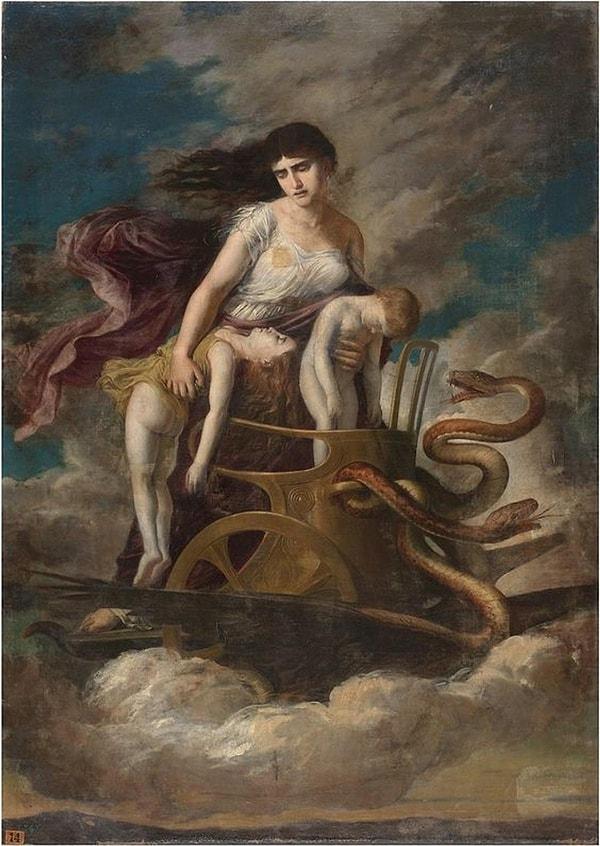
Medea, the Sorceress of Colchis, was a princess in Colchis when Jason (from Jason and the Argonauts) arrived in the city. Impressed by Jason, Medea betrays her family to help him and eliminates her brothers. As a result, Medea and Jason flee to Thebes, where Jason quickly decides to marry Princess Glauce. So, how does the sorceress Medea react to the situation? Sending Glauce a poisoned robe, Medea brings an end to Glauce and her father King Creon. She then kills her two children from Jason, mocking him as he mourns for everything he has lost.
Erysichthon was forced to eat his own body after encountering a wrathful nymph.
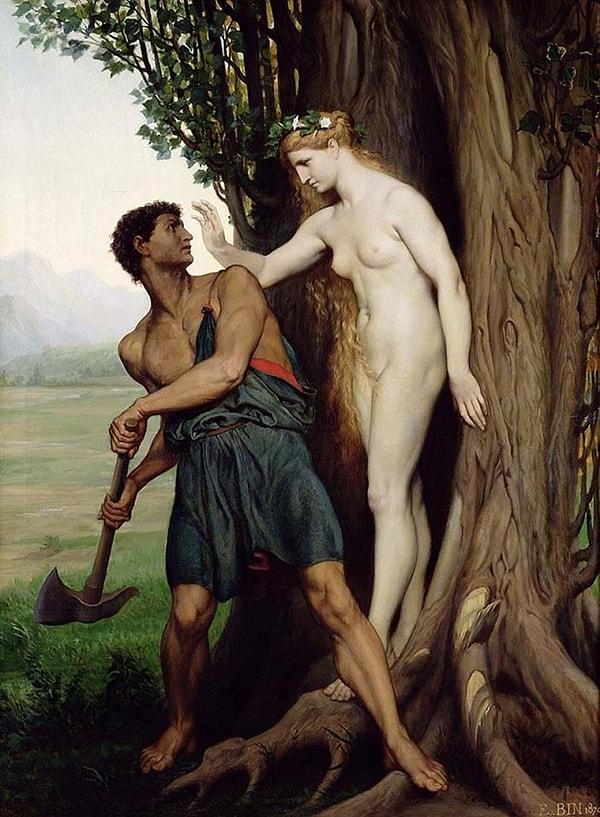
The story of Erysichthon echoes interestingly in this age of climate change. Erysichthon, a proud and greedy king, orders his men to cut down all the trees in his kingdom, except for a sacred tree covered with offerings to Demeter. When his men refuse to cut the tree, Erysichthon takes up the axe himself. Unbeknownst to him, the tree is inhabited by a nymph. In his final breath, the nymph curses Erysichthon with insatiable hunger. The more he eats, the hungrier he becomes. He depletes all the resources of his kingdom and eventually sells his daughter. In some versions of the story, because his daughter can change forms, he sells her repeatedly. Finally, when he has nothing left to eat, he begins to consume his own flesh and dies.
Zeus condemns Prometheus to eternal torment.
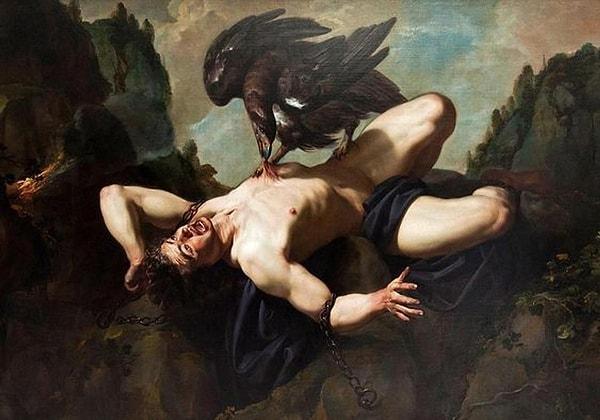
In ancient Greece, there was one rule if you wanted to survive: don't cross Zeus. The king of the gods was vengeful, merciless, and had no sense of proportion when it came to punishment. Let's consider the story of Prometheus, a Titan member of a powerful group banished to the underworld by Zeus. Humans were cold and starving, stuck to the ground. Pitying them, Prometheus stole fire from Zeus and gave it to humans so they could warm up and cook their food. In return, Zeus chains Prometheus to a high mountain and sends an eagle to eat his liver every day. As if that wasn't bad enough, Zeus ensures that Prometheus' liver regrows every night, ready to be eaten again. In some mythological sources, Heracles eventually appears and kills the eagle. In others, Prometheus remains there still.
Wine God Dionysus tears Pentheus' limbs apart for resisting his cult.
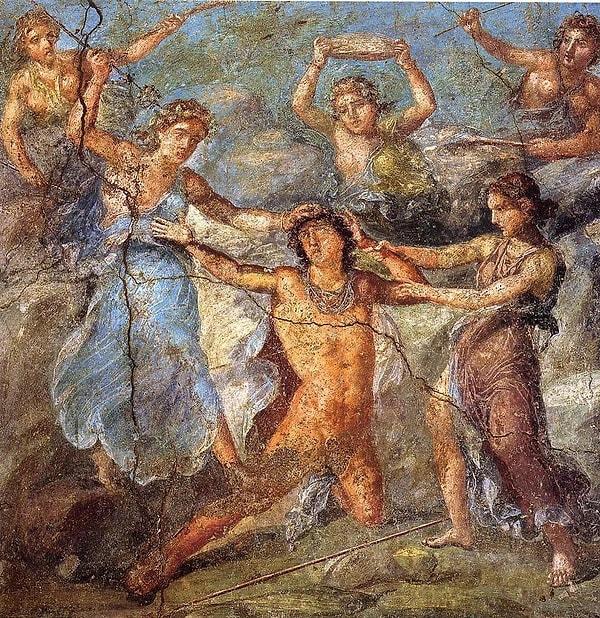
Pentheus, the ruler of his city, dislikes the revelries and debauchery. As a prominent authority, he is determined to suppress these festivities by force. In retaliation, the wine god Dionysus lures Pentheus' female family members to a grand party. Pentheus tries to imprison Dionysus but the god breaks free from his chains. Dionysus then brings Pentheus to the Bacchanal, where he is mistaken for a wild boar and his limbs are torn apart in the frenzy. In some versions, his own mother is the first to strike him and she even cuts off his head and puts it on a stake.
Hecuba is forced to witness her grandson's fall from a high tower.

In Euripides' anti-war play The Trojan Women, the women of Troy have been captured by the Greeks. As they begin their new lives as slaves, they endure mistreatment while waiting to see which Greek soldier will claim them as their masters. But the most tragic event unfolds when the Greek messenger Talthybius arrives to inform the women that Odysseus' council has decided that Hector's son Astyanax must be eliminated. Hecuba, the leader of the women and Astyanax's grandmother, is forced to watch as the Greeks throw her grandson from Troy's highest tower. This tragic event showcases the devastating effects of war on innocent people and emphasizes the cruelty of humanity.
Agamemnon is forced to sacrifice his daughter.
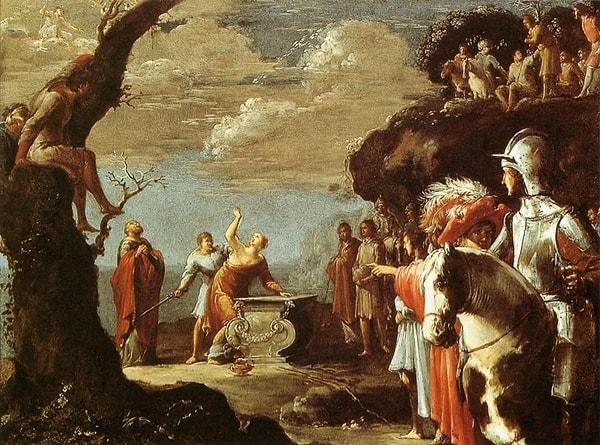
As the Trojan War looms, the greatest Greek heroes gather at Aulis, ready to sail to Troy and begin the war. However, they face constant unfavorable winds that make sailing impossible. Consulting an oracle, they learn that the gods are angry with Agamemnon, the leader of the expedition. Seeking to avenge his brother and go to war against Troy, Agamemnon is forced to sacrifice his daughter Iphigenia. Driven by his sense of honor, Agamemnon carries out the oracle's instructions and sacrifices his daughter in front of the entire army.
Tantalus eats his own children.
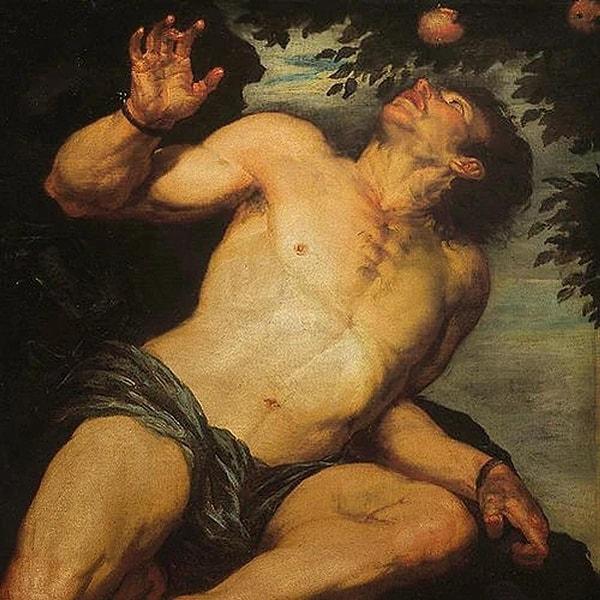
This one goes way back to the beginning of time. The Titan Tantalus rules the universe after overthrowing his father from the throne. However, Tantalus cannot enjoy his reign because of a prophecy that one of his children will overthrow him. Instead of avoiding having children, he decides to eat each of his children as soon as they are born. Tired of suffering birth pains, his wife Rhea devises a plan to prevent their children from being eaten by Tantalus. During one birth, she substitutes a stone for the child. Tantalus eats the stone and, enraged, Zeus curses him with eternal hunger and thirst. Tantalus is forever condemned to reach for food and water that he can never grasp.
Achilles battles a river after slaughtering enough men to dam it.

The Iliad is essentially a catalogue of atrocities, and it's hard to pick just one crazy moment from it. However, on a grand scale, there's hardly anything that can surpass Achilles' struggle with the River Scamander. For most of the Iliad, Achilles refuses to fight, but when his beloved friend Patroclus is killed, he becomes enraged and rushes into battle. In one of the most epic scenes ever written, Achilles kills so many Trojans that their bodies start to dam up the nearby River Scamander. The river becomes angry and tells Achilles to stop. But no one can match Achilles in terms of anger, and he refuses. The river then tries to pull Achilles down, but he is saved at the last moment by the god of fire, Hephaestus.
Cronus devours his own children one by one.

This one goes way back to the dawn of time. The Titan Cronus rules the universe after overthrowing his father from the throne. However, Cronus cannot enjoy his reign because of a prophecy that one of his children will overthrow him. Instead of avoiding having children, he decides to eat each of his children as soon as they are born. Tired of suffering birth pains, his wife Rhea devises a plan to prevent their children from being eaten by Cronus. During one birth, she substitutes a stone for the child. Cronus eats the stone and, enraged, Zeus curses him with eternal hunger and thirst. Cronus is forever condemned to reach for food and water that he can never grasp.
Oedipus learns something so horrifying that he gouges out his own eyes.

In Sophocles' Oedipus Rex, Oedipus becomes the king of Thebes after solving the Sphinx's riddle. When a divine plague strikes the city, Oedipus is compelled to investigate the murder of the previous king, Laius. As he questions witnesses, he gradually uncovers the truth. In the end, when he learns the shocking truth, that he accidentally killed Laius and married Queen Jocasta, who is revealed to be his own mother, Oedipus gouges out his eyes with a pin from Jocasta's dress. Oedipus is often considered the first detective story and is almost postmodern in its twist of having the criminal and the detective be the same person. It is also the inspiration behind the (largely debunked) Freudian Oedipus complex theory.
The Sphinx destroys those who incorrectly solve her riddles.

What walks on four legs in the morning, two legs at noon, and three legs in the evening? Humans. Got it? If you didn't, you're about to be devoured by the ancient creature known as the Sphinx. In Greek mythology, the Sphinx has the head of a human and the body of a lion. She roams the wilderness, stopping travelers and posing riddles to them. Hera places the Sphinx outside the city of Thebes. Oedipus solves the riddle, kills the Sphinx, and is crowned king.
Odysseus kills dozens of suitors who try to court his wife.
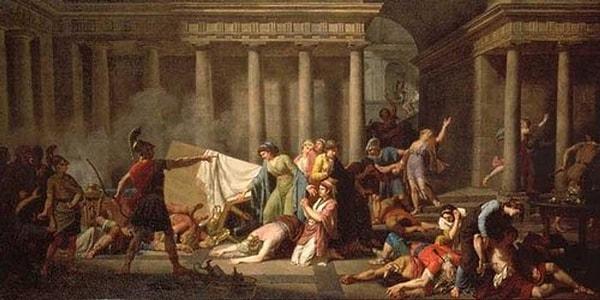
When Odysseus leaves his home of Ithaca, he expects to be gone for just a few years. However, between the long Trojan War and his winding journey home, 20 years pass. During his absence, suitors who want to win his wife Penelope flood Ithaca. Despite Penelope's rejections, the suitors persist and camp in Odysseus' house, consuming his food because they never anticipate his return. However, when Odysseus does return, he swiftly deals with most of them because they had overstayed their welcome, and he has to reclaim his kingdom and his wife.
Keşfet ile ziyaret ettiğin tüm kategorileri tek akışta gör!

Send Comment